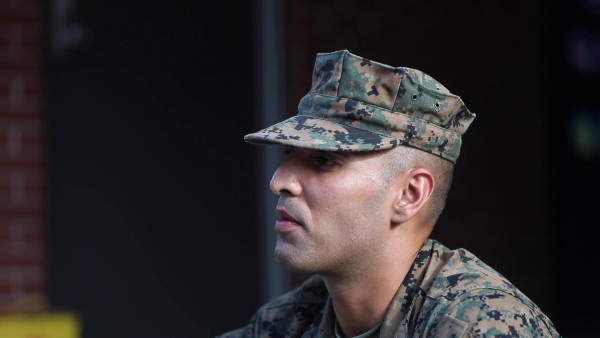

Showing just how far removed the war is from life at home, none of the Senators who questioned Army Secretary Mark Esper during his nearly three-hour confirmation hearing to become defense secretary asked about Afghanistan.
While Afghanistan was mentioned twice in passing, Esper did not face direct questions about the U.S. government’s strategy of fighting the Taliban while simultaneously negotiating a peace settlement with them.
A total of 12 service members and at least two U.S. contractors have been killed in Afghanistan so far in 2019.
Currently, about 14,000 U.S. troops are serving in Afghanistan, of which roughly 9,000 are part of the international effort to assist Afghan troops and police and the remaining 5,000 or focused on the counter-terrorism mission.
While the topic of Afghanistan did not come up on Tuesday, prior to the hearing Esper submitted written answers to questions about Afghanistan posed by members of the Senate Armed Services Committee.
In his answers, Esper confirmed that, “Withdrawal of foreign forces is one component of negotiations with the Taliban.”
Esper also praised Afghan security forces for bearing the brunt of the fighting against the Taliban, adding that recruiting and retention has finally outpaced attrition.
With that said, the death toll for Afghan security forces has been staggering. In November, Afghan President Ashraf Ghani said that nearly 29,000 Afghan troops and police had been killed since 2015.
Most recently, Afghan Col. Mobin Mohabati, commander of an Afghan army brigade that recently retook a district in Ghazni Province, was killed Wednesday in an apparent insider attack, New York Times Jawad Sukhanyar tweeted. No U.S. troops were killed or wounded in the attack, Task & Purpose confirmed.
Elsewhere on Wednesday, 25 Afghan commandos were reportedly killed in Badghis Province.
The Pentagon no longer publicizes casualty figures for Afghan security forces, per the Afghan government’s request. The U.S. military command in Afghanistan has also stopped tracking how much territory the Afghan government actually controls.
U.S. special envoy to Afghanistan Zalmay Khalilzad is insisting the Taliban prevent Afghanistan from being used as a staging area for terrorist attacks against the United States as part of any peace deal, even though the Taliban have refused to break with Al Qaeda for more than 20 years.
When asked by lawmakers if he believes the Taliban is willing and able to fight Al Qaeda and ISIS, Esper did not answer directly in his written response.
“If confirmed, I will support DoD’s efforts to consider carefully the terrorist threats that remain in Afghanistan and the resources and capabilities needed to defeat them,” Esper wrote. “In the event of a peace deal, we would have to evaluate the Taliban’s ability to work with the Afghan security forces to combat terrorist threats, such as ISIS-K and al Qaeda.”
Here are the reported U.S. deaths in Afghanistan so far in 2019:
COMBAT DEATHS
- Army Ranger Sgt. Cameron A. Meddock, Jan. 17
- Special Forces Staff Sgt. Joshua Z. Beale, Jan. 22
- Special Forces Sgt. 1st Class Will D. Lindsay, March 22
- Spc. Joseph P. Collette, March 22
- Marine Cpl. Robert A. Hendriks, April 8
- Marine Sgt. Benjamin S. Hines, April 8
- Marine Staff Sgt. Christopher K.A. Slutman, April 8
- Special Forces Master Sgt. Micheal B. Riley, June 25
- Army Sgt. James G. Johnston, June 25
- Special Forces Sgt. Maj. James G. Sartor, July 13
NON-COMBAT DEATHS
- Army Spc. Miguel L. Holmes, May 6
- Special Forces Sgt. 1st Class. Elliott J. Robbins, June 30
DEFENSE CONTRACTORS
- Navy veteran Kevin Yali, June 19
- Retired Army Chief Warrant Officer 4 Christian McCoy, June 24